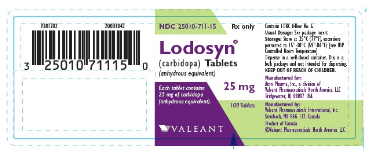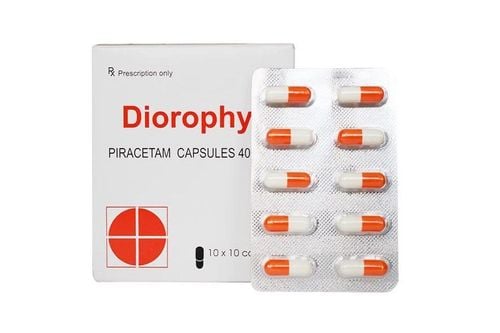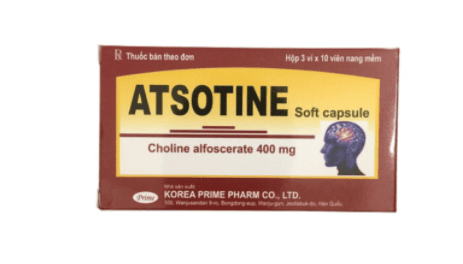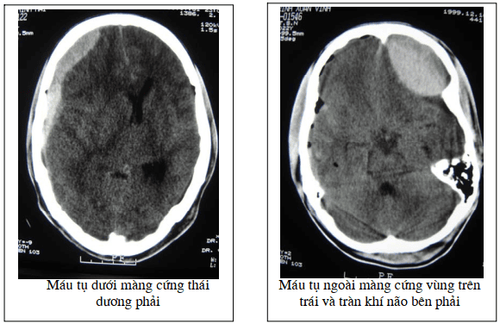This is an automatically translated article.
The article is professionally consulted by Master, Doctor Huynh An Thien - Department of Medical Examination & Internal Medicine - Vinmec Danang International General Hospital.
Many people, when they have a collision, fall and head collision, subjectively do not go to check and think it is not dangerous. But people should be wary, it can cause brain hematoma. In many cases, brain hematomas can cause complications.
1. Cerebral hematoma
Almost everyone has had a hematoma at least once in their life. In the human body there are many large blood vessels, when one of these blood vessels is damaged, there will be a pool of blood pooling outside the large blood vessels, medically called hematoma.This is a common problem, most hematomas occur as a result of trauma. The injury ruptures the vessel walls, allowing blood to spill into the surrounding tissue. Hematomas can form in any blood vessel, including veins, arteries, and even capillaries. Also, the nature of hematomas can vary depending on their location.
Many people mistakenly believe that hematomas are similar to bruises. However, we need to know the difference between a hematoma and a bruise. If the hematoma is caused by damage to the large blood vessels, the bruise is caused by damage to the small blood vessels.
Cerebral hematoma is a phenomenon of damage to the large blood vessels in the brain capsule due to accidents and head trauma, including: Intracranial epidural hematoma is a hematoma appearing between the skull bones, the dura mater of the brain and the brain. A subdural hematoma occurs between the brain and the dura mater surrounding the brain. Cerebral hematoma causes very dangerous complications, which can be fatal for the patient. Therefore, when experiencing injuries or collisions in the head area, go to medical facilities to check for signs of internal hematoma.
2. Causes of cerebral hematoma

Trauma, head impact Traffic accident, fall from height or aneurysm can cause serious hematomas Due to damage to regional tissues nearby vascular system due to dental or cosmetic procedures Using anticoagulants such as: Aspirin, warfarin, or dipyridamole (Persantine) is associated with increased risk of bleeding problems, including hematoma. In addition, cerebral hematoma can be caused by many other causes. However, patients with hematomas have in common that they will be subjective when they have a head injury. Some people, when they are diagnosed with the disease, still can't remember where they have fallen or bumped, because it can be very light and small collisions such as: hitting their head against a wall, getting up and hitting a window, cabinet, or faucet with their head. water...
In many cases, when a hematoma was detected late, many complications appeared such as: headache, vomiting, coma. Those who are saved may recover incompletely, become paralyzed, unable to speak, and be dumbfounded; If the brain is compressed for too long, causing serious damage, then death.
There are three lesions, when a head injury occurs: acute (signs occur immediately after the injury); subacute (a few days after the injury, symptoms appear) and chronic (after a month). These types of injuries, if treated promptly, decompressed brain early, drained the hematoma, most recover completely right after removing all the hematoma.
Therefore, people should not subjectively underestimate head injuries, even if there is no visible injury in a collision or head-on collision, they must be careful and closely monitor their health. If you experience any of the following symptoms, immediately go to medical facilities for testing and treatment.
3. Signs of brain hematoma
The early signs of a brain hematoma are difficult to distinguish without testing, because they are similar to many other symptoms. Therefore, the patient will experience symptoms such as swelling of the scalp, headache, dizziness, or slurred speech that does not stop. For the most part, symptoms of a subdural hematoma usually appear within 72 hours of injury.Patients should pay special attention to the following signs to avoid complications of cerebral hematoma: Severe headache and getting worse; irregular pupils; difficulty moving limbs; hearing loss ; difficulty swallowing; drowsiness, loss of consciousness...
4. Treatment of cerebral hematoma
For cases of hematoma under the nails, under the scalp, .. do not require treatment because the body will reabsorb blood from the hematoma over time. Patients only need to use quick measures at home to control the subcutaneous hematoma such as: avoiding touching the damaged area and applying ice to reduce swelling and pain.For those who feel more pain, pain medication will be prescribed. However, it is necessary to limit the use of anticoagulants such as aspirin to avoid aggravating the condition.

Vinmec International General Hospital is one of the hospitals that not only ensures professional quality with a team of leading medical doctors, modern equipment and technology, but also stands out for its examination and consultation services. comprehensive and professional medical consultation and treatment; civilized, polite, safe and sterile medical examination and treatment space.
Please dial HOTLINE for more information or register for an appointment HERE. Download MyVinmec app to make appointments faster and to manage your bookings easily.














